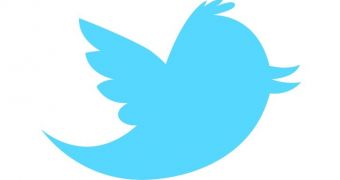The Electronic Frontier Foundation (EFF) has never shied away from expressing its view on topics such as surveillance or censorship. This time around, the organization’s ire is directed at Twitter and its willingness to censor messages as per the desire of Russia and Pakistan.
The EFF believes that Twitter has managed to take a step down from the free speech party through the new moves.
In a blog post signed by Eva Galperin, Global Policy Analyst, it is explained that back in 2012 when Twitter launched a way to take down content in individual countries, as opposed to the entire network, the EFF backed up the decision, claiming it was the least terrible option of them all.
Furthermore, it mentions that Twitter cannot be compelled to follow court orders from countries where it doesn’t really have many employees, which limits the number of countries that have an influence on the social platform to a handful – United Kingdom, Ireland, Germany and Japan.
“We're sad to announce that Twitter has now caved. In 2012, Tony Wang, general manager at Twitter UK, called Twitter ‘the free speech wing of the free speech party,’ a phrase repeated by CEO Dick Costolo. But two years, a massive expansion, and an IPO later, that claim rings hollow, especially to people in Russia and Pakistan,” reads the EFF blog post.
Russian authorities have apparently demanded that Twitter block access to the account of a nationalist political party since there’s a message reading that the account has been withheld, something that only appears when the censorship is applied locally.
“There are two ways Twitter's actions are disappointing. First, Twitter has no employees or assets in Russia, so it should not have to comply with a Russian court order at all. And the order isn't even about a Russian account—it's a Ukranian one. Worse yet, Pravy Sektor's account is plainly political. If Twitter won't stand up for political speech in a country where independent media is increasingly under attack, what will it stand for,” the post makes an important point.
Twitter is criticized for betraying its fundamental values for its actions in Pakistan as well, where the company has rolled out a block for several accounts. Considering Pakistan’s efforts to limit press freedom and access to the Internet, Twitter’s compliance is seen as an even worse offence. After all, YouTube has chosen to become banned back in 2012 rather than remove a video the government saw as offending.
Of course, Twitter doesn’t have nearly as many users as YouTube to spare if it comes to being blocked in an entire nation, so perhaps the company is trying to avoid this from fear of the reaction that investors would have. After all, the weak hike in user numbers in the first trimester of the year caused a slump in Twitter’s stock prices.

 14 DAY TRIAL //
14 DAY TRIAL //